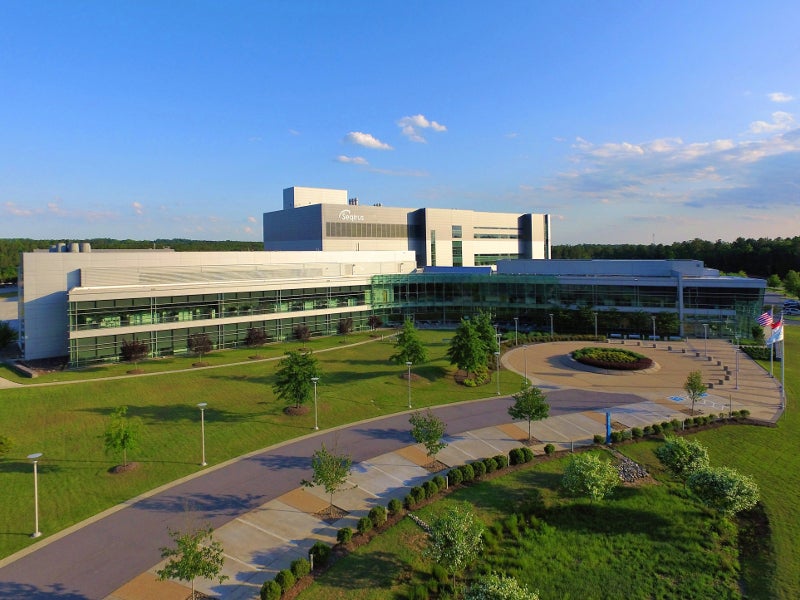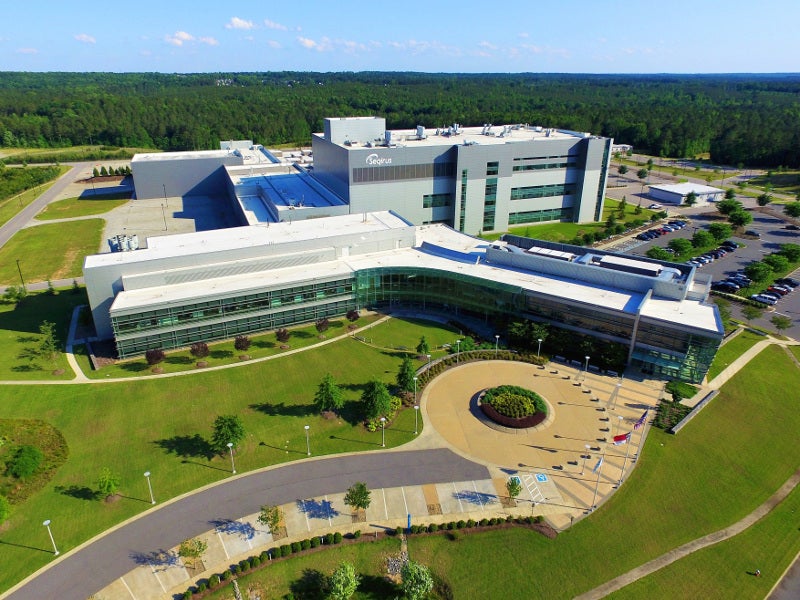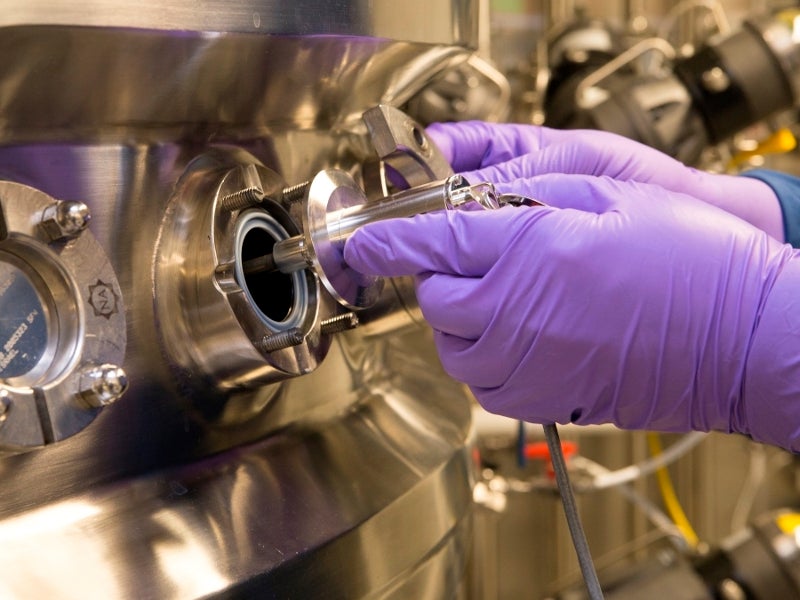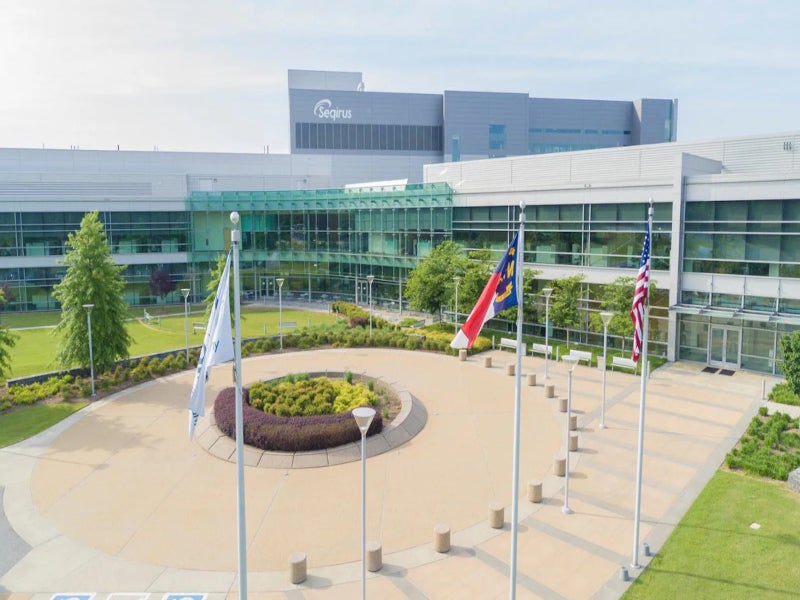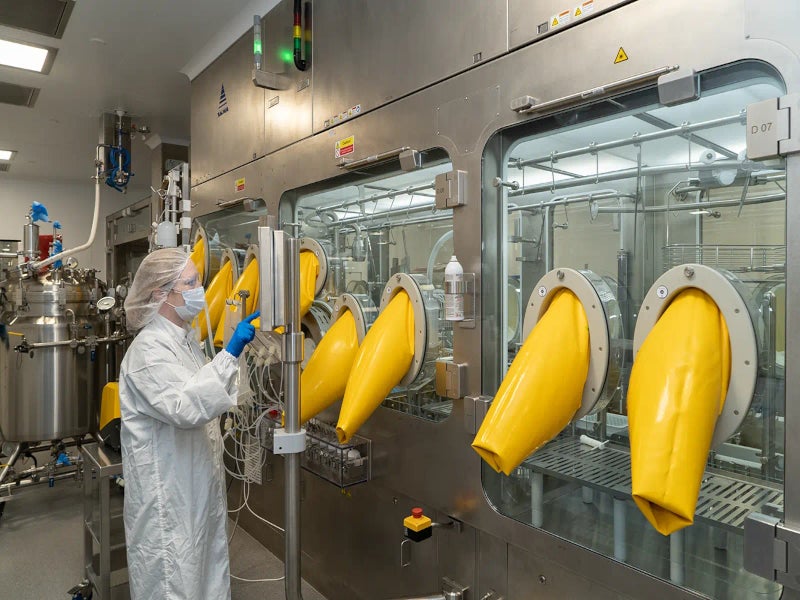Australia-based biotherapeutics company Seqirus has expanded its influenza vaccine manufacturing facility in Holly Springs, North Carolina, with a $156m investment. The expansion improved the formulation and fill-finish capabilities of the company’s cell-based influenza vaccines in pre-filled syringes for global supply.
Construction of the project started in November 2018 and was completed in June 2022. It created more than 80 highly skilled jobs.
Location of Seqirus’ vaccine manufacturing facility
The Holly Springs flu vaccine manufacturing facility occupies a 185-acre site in the Holly Springs Business Park situated in the Research Triangle region in Wake County.
The business park is located 22 miles (35.4km) from the Raleigh-Durham International Airport and is designated as a foreign trade zone. It offers companies between five and 50 acres of land ready for development.
Seqirus vaccine manufacturing facility expansion and process technology details
The manufacturing facility occupies more than 475,000ft² and is designed to produce up to 200 million influenza vaccine doses within six months of a declared epidemic or pandemic.
It uses cell culture-based technology as a substitute for conventional egg-based influenza vaccine production. Cell-culture based vaccines are produced using a candidate vaccine virus isolated and cultured in cells as opposed to eggs. The viruses are then grown within mammalian cells inside sterile stainless-steel bioreactors.
The cell-culture technology allows products to be scaled up more quickly in the event of an influenza pandemic.
US-based construction company Fluor was contracted to carry out the facility expansion.
The expansion increased the number of state-of-the-art fill-finish lines at the facility to two.
Together with the recently US Food and Drug Administration (FDA) approved pre-filled syringe line, the expanded manufacturing facility allows the company to increase the production capacity and supply of its Flucelvax® Quadrivalent influenza vaccine to the US market.
The US FDA approved the production of cell-based Flucelvax® Quadrivalent vaccines at the facility in 2016.
Seqirus facilities and production details
The Holly Springs manufacturing plant is a highly automated, purpose-built facility developed in partnership with the US Department of Health and Human Services’ Biomedical Advanced Research and Development Authority (BARDA). The expansion is intended to enhance the site’s regular seasonal influenza vaccine production, as well as prompt production in respond to a potential influenza pandemic.
The US Food and Drug Administration (FDA) licensed the facility to produce Flucelvax in 2014.
It is the US’ first cell culture-based facility and houses seven buildings linked by a central corridor and a high-speed syringe filling line, as well as formulation, inspection and packaging capabilities.
The facility can produce approximately 20 million doses of the Flucelvax Quadrivalent influenza vaccine during a season. Flucelvax Quadrivalent helps protect against influenza in people aged four years and older.
Fluad Quadrivalent is specifically developed using the company’s MF59® adjuvant for patients aged 65 years and older. The vaccine is also produced at the company’s Holly Springs facility.
Marketing commentary on Seqirus
Seqirus is a subsidiary of CSL formed following the acquisition of Novartis’ influenza vaccine unit in February 2016 and integrated with CSL’s vaccines division, bioCSL.
The company operates production facilities in the US, UK and Australia. It manufactures influenza vaccines using both egg-based and cell-based technologies.
Seqirus has a wide portfolio of differentiated products marketed in more than 20 countries. The company’s 2018-19 influenza vaccine portfolio includes Fluad Quadrivalent, Flucelvax Quadrivalent, and Afluria® Quadrivalent.
The company is also building a vaccine manufacturing facility in Melbourne, Australia, which is expected to be completed in 2026.

